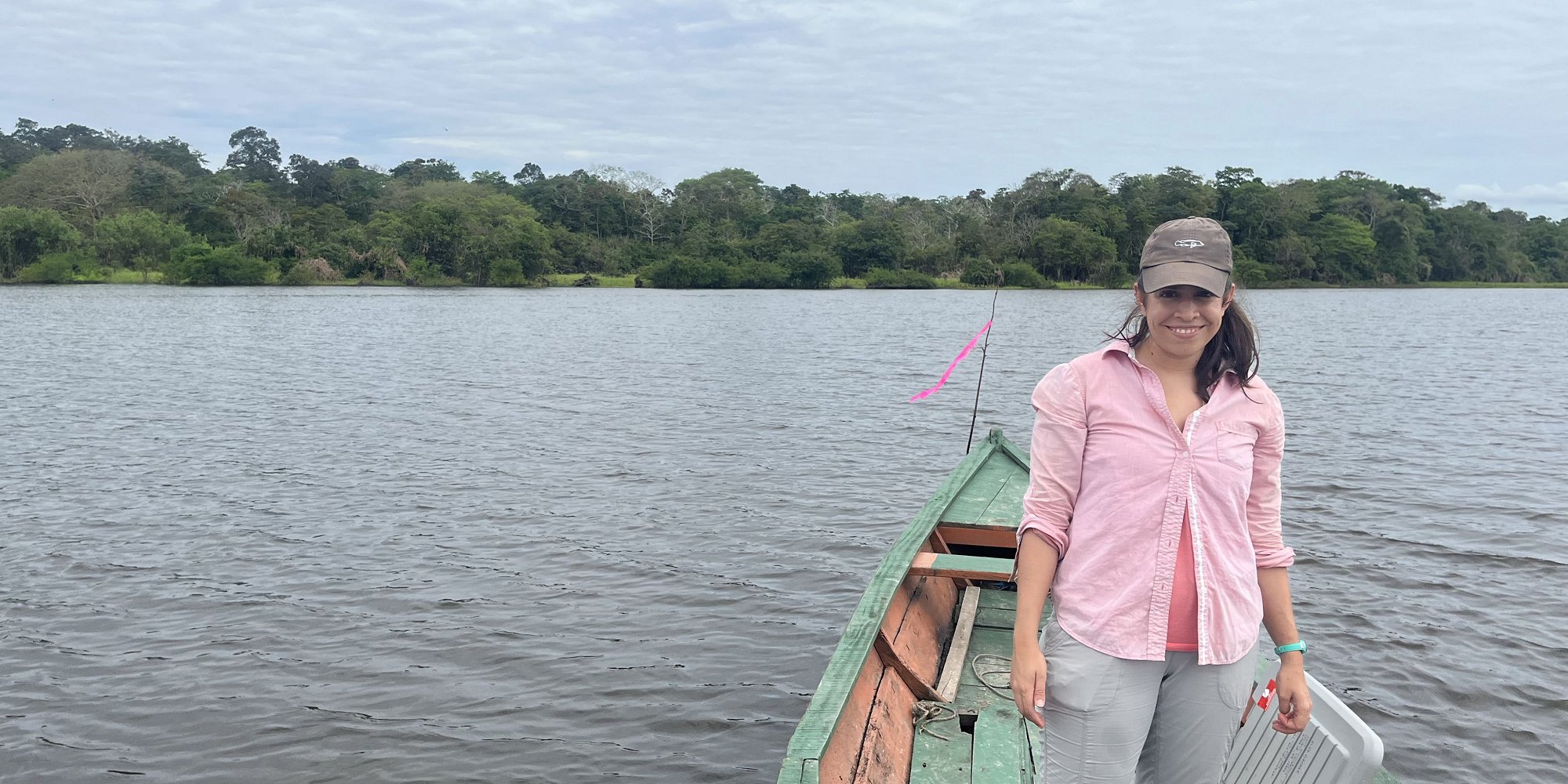Cornell Atkinson Sustainable Biodiversity Fund – Instructions for 2024 Proposals
|
To strengthen their application, prospective applicants are encouraged to learn about current recipients and their projects by attending: The Cornell Atkinson Graduate Research Symposium: |
The Cornell Atkinson Center for Sustainability’s Sustainable Biodiversity Fund (SBF) supports Cornell Ph.D. students in any field with grants for research. These early career researchers carry out novel research on the most pressing questions related to biodiversity. Protecting the earth’s biodiversity is critical for preserving global ecosystem services, natural pest control, and four billion years of irreplaceable evolutionary history.
Cornell doctoral students from all disciplines are encouraged to apply to pursue innovative, interdisciplinary research relevant to the sustainability of natural biodiversity. Diversity, equity, inclusion, and social justice are critical to sustainability, and Cornell Atkinson is committed to these values.
Timeline:
- Call for proposals: Oct. 2, 2023
- Deadline for proposal submission: Nov. 6, 2023, 5:00 P.M.
- Estimated notification date: Jan. 8, 2024
- Earliest project start date: Jan. 22, 2024
Eligibility
Cornell graduate students from any field with research interests in sustainable biodiversity are eligible, including past recipients of the award. Award recipients must participate in the fall SBF Symposium. Proposals by applicants who have not been previously funded by SBF can submit funding requests up to $7,000, or $8,000 with an undergraduate research assistant. Applicants who have previously received SBF funding can request funding up to $3000, or $4,000 with an undergraduate research assistant.
SBF awards can be used only for research; they cannot support demonstrations, course development, or outreach. Funds may not be used to pay a stipend for the applicant, to pay journal page charges of more than $2000 total, or to purchase computers or equipment typically available in faculty labs. A maximum of $3,000 may be used for undergraduate research assistance. If you request funds for an undergraduate research assistant, please justify the need and provide a clear plan for mentorship on your budget page.
All funds should be spent within two years of the award; extensions will typically not be granted but may be requested in writing by emailing the program manager at the address
below.
Funding decisions are made based on the availability of funds, overall intellectual merit, and alignment of the project to the Sustainable Biodiversity Fund’s strategic goals.
Awardee Requirements
- Submit a short professional profile statement and photo for the Cornell Atkinson website,
- Present your research at the annual SBF symposium the year after funding,
- Complete a short final report, due after 2 years,
- Provide information about grants, publications, presentations, and publicity based on your SBF award for two years after your award, and
- Participate in a review panel to evaluate research proposals the year after your award.
2023 Applications: Deadline is Monday, November 6, 2023, at 5:00 PM ET.
Create a single PDF document (saved as Your Last Name-First Name, e.g. Smith-John.pdf) including the following:
- Online application form
- Abstract (maximum 250 words). A brief summary of the proposed research and timeline.
- Proposal for new research (3 pages maximum, excluding references)
- Statement on the project’s sustainable biodiversity impact (half page maximum)
- If previously funded by SBF include summary of 1) results from earlier grant, 2) awards received as a result of earlier funding, 3) publicity generated by earlier funding, and 4) list of publications, including nontechnical writings.
- Short CV (2 pages maximum)
- Detailed budget and justification—the more specific, the better (1 page maximum), include 10% university indirect cost charge.
- If you are asking for funding to support an undergraduate assistant, please include a mentoring plan (up to ½ additional page).
- Current and pending funding: title, amount, duration, and funding source for all funds available to you and your faculty advisers for this project. Demonstration of need and lack of other funding is critical.
Assemble one PDF file with all of these parts in the above order, each starting on a separate page. All materials should be submitted via this online form. (You will need to log in with a
Google account).
Funding decisions will be made on the basis of overall scientific merit, relevance to the goals of sustainable biodiversity, and availability of funds.
Examples of Previous Successful Proposals
Research Topics
We advocate innovative approaches with sustainable biodiversity as a central theme. To help you brainstorm project ideas, here is a list of hypothetical topics. The topics below are neither
preferred nor comprehensive.
- The economic cost of biodiversity loss
- Biodiversity loss and ecosystem functioning
- Impacts of alternative energy sources on biodiversity
- The origins and maintenance of global biodiversity hotspots
- Impacts of invasive species on biodiversity
- How ecotourism impacts biodiversity and economic development
- Impacts on biodiversity of climate-mediated disease spread
- Consequences of native pollinator biodiversity for natural and managed systems
- How studying the past (evolution of diversity) can forecast the future (sustaining biodiversity)
Questions? Contact Alison Power (agp4@cornell.edu), Department of Ecology and Evolutionary Biology.
